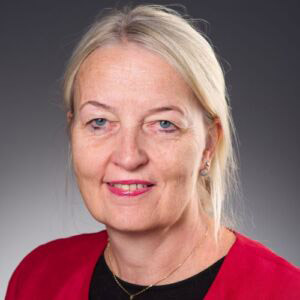Keynote Speakers
George Demiris PhD, FACMI

Mary Alice Bennett University Professor, Associate Dean for Research and Innovation
School of Nursing & Biomedical Informatics, Perelman School of Medicine
University of Pennsylvania
Short Bio
George Demiris is a PIK (Penn Integrates Knowledge) University Professor at the University of Pennsylvania and holds joint faculty appointments in the Department of Biobehavioral Health Sciences of the School of Nursing where he serves as Associate Dean for Research and Innovation, and the Informatics Division of the Department of Biostatistics, Epidemiology and Informatics, Perelman School of Medicine. He explores innovative ways to utilize technology and support older adults and their families in various settings, including home and hospice care. He also focuses on designing and evaluating personal health systems that produce patient-generated data including “smart home” solutions for aging. He is a Member of the National Academy of Medicine, a Fellow of the American College of Medical Informatics, the Gerontological Society of America and the International Academy of Health Sciences Informatics. He has conducted numerous federally funded studies and his work has been funded consistently over the years both by the National Institutes of Health (NIH) and the National Science Foundation (NSF). He directs the Penn Artificial Intelligence and Technology Collaboratory for Healthy Aging and is co-director of the Penn Community Collaboratory for Co-Creation.
Anne Moen, RN, PhD, FACMI, FIAHSI

Short Bio
Anne Moen is full professor at the Faculty of Medicine, University of Oslo, Oslo, Norway, and adjunct Professor, Norwegian Center for eHealth Research, Tromsø, Norway. She is Director of UiO:eColab, a research lab supporting technology mediated complex, patient focused interventions, and multidisciplinary teamwork where health professionals, patients and their families collaborates to sustain health and wellbeing. Her program of research seeks to understand digital citizens centered services, based on opportunities to “collect, curate and control” all relevant, personal health information. To do so, she combines in-depth insights in healthcare with design and deployment of accessible digital solutions, emphasizing citizen empowerment, digital health literacy and overall engagement for health and wellness.
Professor Moen is the Coordinator of “Gravitate – Health: Empowering and Equipping Europeans with Health Information from trusted sources for active, safe, secure personal health management and adherence to treatment” Innovation Medicine Initiative Public-Private Partnership (project 945334, IMI2 JU, 2020-2025). Gravitate-Health’s mission is to prepare and test innovative, easy-to-use, elegant digital services that actively engage and empower citizens and their support network with access to and understanding of health information from trusted sources. More information is available at www.gravitatehealth.eu
Professor Moen served as President of EFMI (European Federation for Medical Informatics) (2014 – 2016), and IMIA-EFMI Vice President (2016-2018) and EFMI representative in EU eHealth stakeholder group (2015 – 2019) assuming the role as rapporteur for special focus on “Citizens – health data”. She is elected fellow of ACMI (American College of Medical Informatics) 2015, founding fellow of IAHSI (International Academy for Health Sciences Informatics) 2017, and elected Honorary Fellow of EFMI from 2019.
Anne Moen is an RN (1985), holds a master degree in nursing science (1996), and PhD in social sciences (Dr. polit) – specialization in health informatics (2002) from University of Oslo, Norway. She was Fulbright fellow (2002) and postdoc at University of Wisconsin-Madison and UiO (2002 – 2005), and visiting scientist at University of Wisconsin-Madison – Health systems Lab (Patricia F. Brennan PI) (2005 – 2012, 2015).
Professor Theodoros N. Arvanitis

Short Bio
Professor Theodoros N. Arvanitis holds the Chair of Digital Health Technology, he is the Head of the Department of Electronic, Electrical and Systems Engineering, School of Engineering, and affiliated with Cancer and Genomic Sciences at the College of Medicine and Health, at the University of Birmingham, United Kingdom. He is also an Honorary Professor and Clinical Scientist at University Hospitals Coventry and Warwickshire NHS Trust, and an Honorary Professor at the Institute of Digital Healthcare at the University of Warwick (which he led previously before his current appointment). He is one of the Associate Directors of HDR UK for Midlands. Within the University of Birmingham, he leads the Digital Healthcare and Medical Imaging Research Group. He is also the Editor-in-Chief at Digital Health, an open access peer-reviewed, journal, published by Sage Publications, UK.
His research interests span the areas of biomedical engineering, neuroimaging, and health informatics (in particular, clinical decision support systems), with a strong academic and industrial experience in software engineering for healthcare. As a Research Leader, he has developed a substantial digital health team that encompasses experience across multiple disciplines, which brings together a rich and long pedigree of knowledge, in interconnectivity, interoperability and deployment of innovative solutions. In particular, he has a long-standing expertise in the field of quantitative image analysis and radiomics. He has delivered solutions at multiple maturity levels (from lab-based innovation to product deployment) and has established collaboration with major actors in the healthcare industry, including trusts, healthcare IT and medical device companies, as well as patient forums and regulators.
Professor Arvanitis has a substantial academic publication record (Google Scholar Profile h-index = 48), while he has received research funding from national (UK), European and international governmental funding agencies, charities and industry. He is currently the research leader, representing the University of Birmingham, in European projects under the Horizon Europe programme, related to security of health data (MedSecurance project) and synthetic health data (Insafedare project), in amongst other funded research projects. He has been involved in UK (BSI) and EU (CEN) standardisation work. In addition to his life-long fellowship of the Greek Biomedical Informatics and Health Informatics Association (FGBHI), he is a Charted Engineer (CEng), Fellow of the Royal Society of Medicine (FRSM), and a member of various scientific and professional groups (ACM, AMIA, GBHIA, IET, ISMRM NYAS, RSM).
